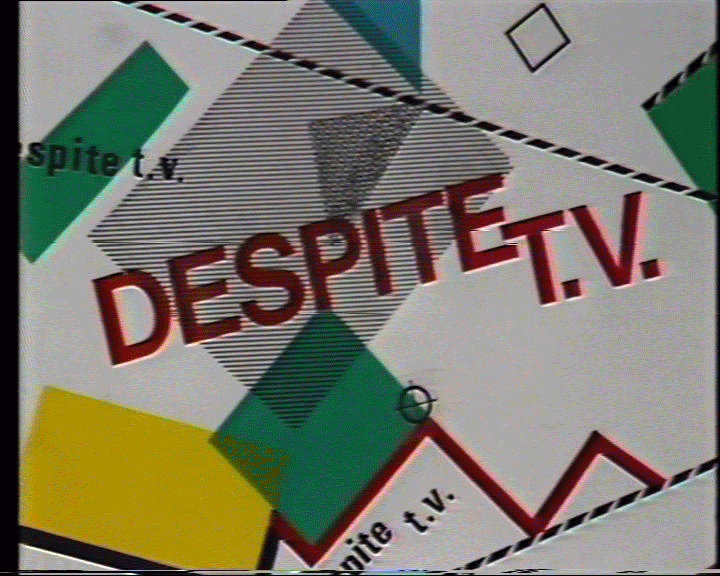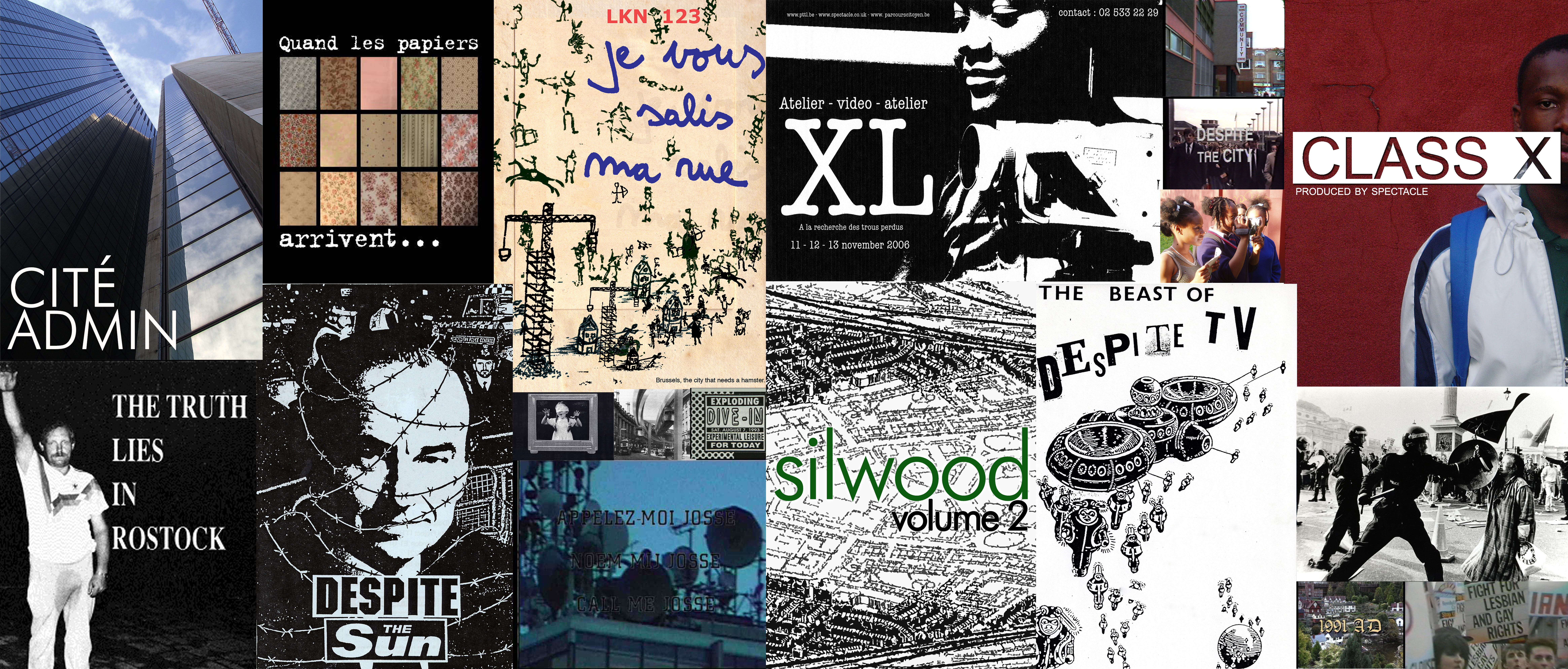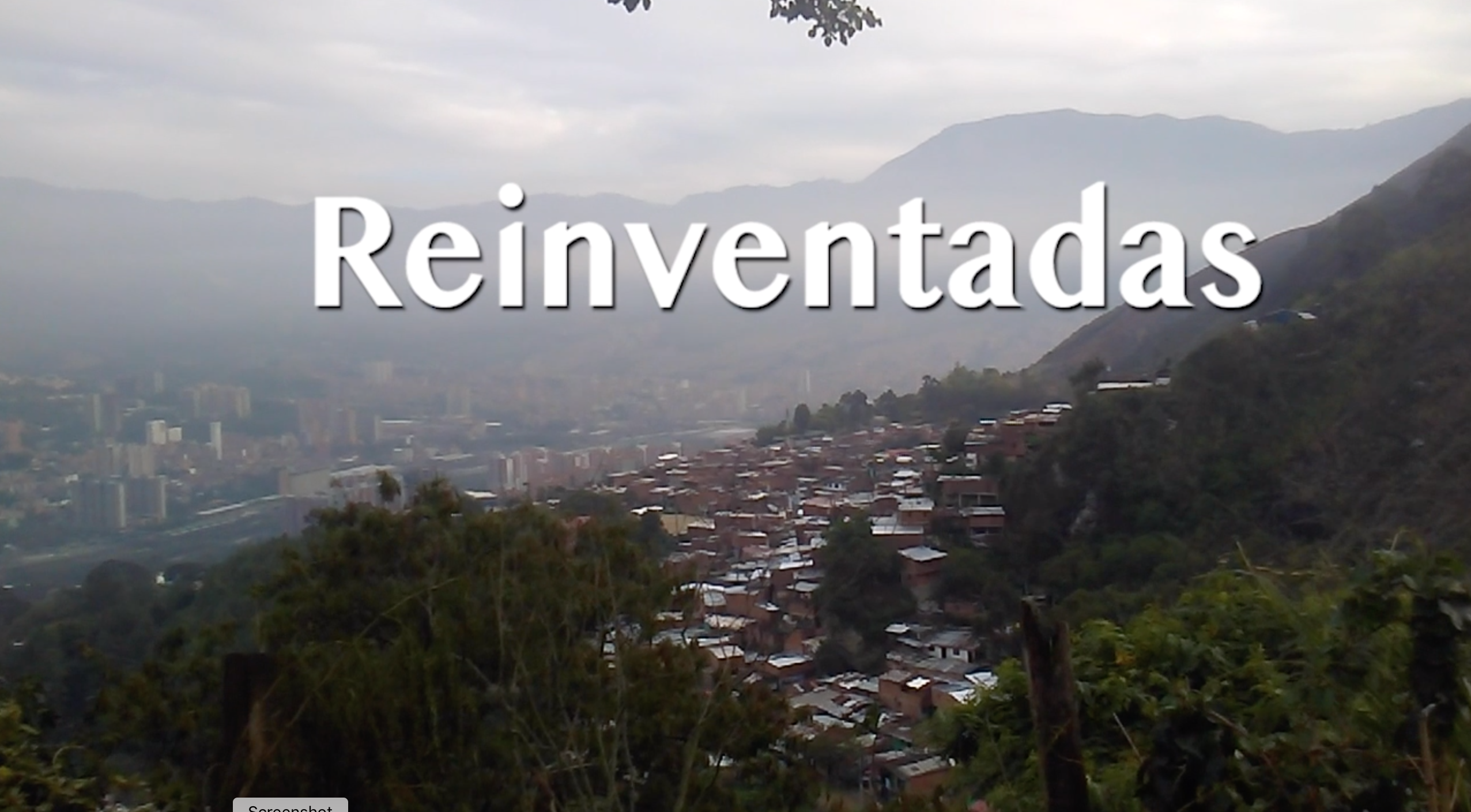History of Spectacle’s Participatory Model
Our participatory approach is informed by 40 years of practice in Community Video, Access TV, camcorder journalism, indie media, independent and no/low budget filmmaking. It foregrounds meaningful participation through consensus and direct editorial control by participants.
Despite TV

Spectacle’s Participatory Video (PV) practice is rooted in political media activism. Spectacle‘s director and founder Mark Saunders founded Despite TV (DTV) in 1982 as a response to and critique of top-down approaches in Community Arts. DTV was set up as a co-operative open to anyone living or working in East London who wanted to create their own films. DTV aimed to give participants the tools to talk for and amongst themselves.
DTV’s structure sought to eliminate traditional hierarchies in the media industry. It viewed video production as an inclusive, non-hierarchical collaborative activity, and employed shared authorship and editorial control.
Everyone in the group had access to equipment and initial training. Participants proposed content, engaged in filming and editing, and were co-directors of the final films. In order to enhance participation and avoid the exclusion of marginal voices in the group, all decisions were taken by consensus. All tasks and roles -such as chairing meetings, but also interviewing, operating cameras, sound recording, or carrying out runner’s tasks- were shared in turns.
A distinctive aspect of DTV was the special emphasis on sharing the editing process, both by engaging in collectively agreed editorial decisions and directly operating the video editing tools.
The Spectacle Model

The model that emerged from DespiteTV served as a blueprint for other similar initiatives set up in Rostock (East Germany), Brussels and other parts of the UK producing a variety of outputs.
Using this model, Spectacle worked on a variety of projects from community-led investigative documentaries for broadcast, to media activism and public advocacy, from local oral histories to video magazines. The model proved adaptable and worked well within a range of projects including: short commissioned film projects, e.g. Class X; long term engagement with specific urban communities (up to 20 years); and working with pre-existing local groups using PV as outreach.
Over the decades, the model has adapted to accommodate changing technology, group size, demographics, as well as projects with a wide variety of aims, objectives, and durations.
Online Participatory Video Workshops

Most recently Spectacle adapted our model to work completely online.
As a partner in the research project Reinventada, led by Dr. Sonja Marzi of the LSE and funded by LSE Knowledge Exchange and Impact fund, Spectacle responded to the needs of the global Covid-19 pandemic by shifting its workshop to a completely remote model. Spectacle facilitated this online participatory workshop for a group of women living in disadvantaged neighbourhoods of Medellin, Colombia. Through the process they were able to direct, film, and edit their own participatory documentary film.
Our Model
Whether online on in person, Spectacle’s PV process is based on workshops in which group members build technical competence, gain confidence in their creative inputs, control the editorial process, and share ownership of the final film.
Spectacle’s PV model highlights meaningful participation by ensuring that no one in the group feels left behind or sidelined and working to put all participants in a position to collaborate equally in the production.
